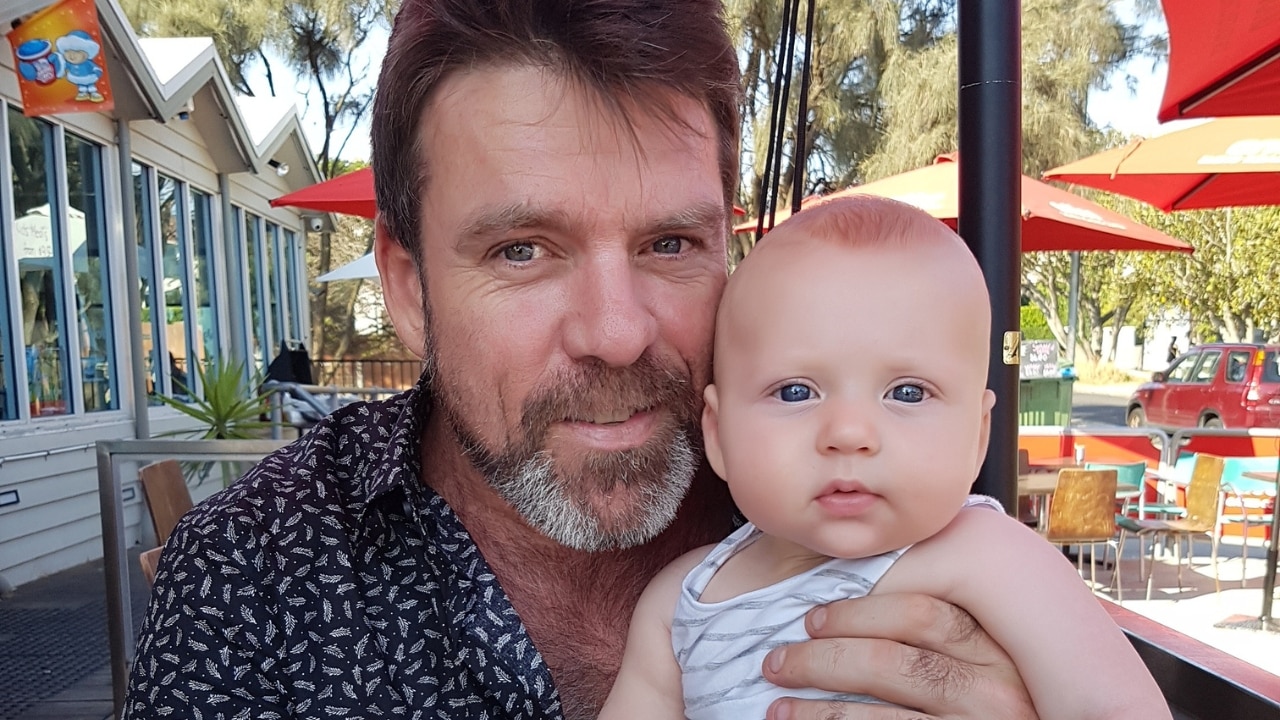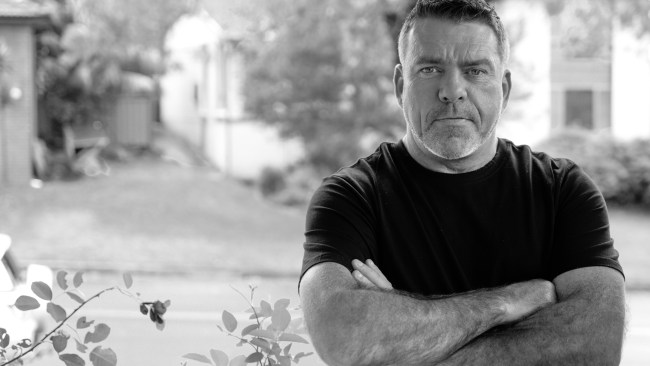'I'm living proof of why men shouldn't always be in the delivery room'
“When a first-time dad witnesses’ childbirth he thinks he’s observing pathological pain and he’s used to being able to protect his partner. When it is childbirth, he can’t see how anything he is doing is making a difference and he feels helpless."

Family Life
Don't miss out on the headlines from Family Life. Followed categories will be added to My News.
Exhausted after anxiously supporting his wife through 24 hours of labour, Steven Kennedy was let into the theatre room.
The curtain was dropped and a nurse said to the first-time dad, ‘meet your new son’.
But little Rory wasn’t yet out of the womb and Steven watched as panic quickly set in on the faces of the doctors and midwives as they struggled to pull his son out.
Want to join the family? Sign up to our Kidspot newsletter for more stories like this.
“He was grey and limp. I put the curtain back up because I didn’t want my wife to see it,” he tells Kidspot.
“They were tugging on her quite a bit which was confronting to witness.
“They ended up reaching for the scalpel and extending the incision.”
That was when he heard a code blue emergency called through the loudspeaker and realised it was for his wife’s theatre room as medical staff flooded in.
RELATED: Mum recalls the ‘disrespectful’ moment stillborn was taken away in an ice box

"I tried to reassure her, not knowing if he would survive"
Rory was finally pulled out and handed to one of the specialists who placed him in a warming unit.
“One of the images that stuck with me was doctors shining a torch through his little hand to find a vein to put a cannula in,” the 55-year-old shares.
Steven stood with his hand on his tiny son’s shoulder as doctors worked to resuscitate him.
“It was quite surreal,” he says looking back on the birth in 2017.
“The look on my wife’s face was confusion and she didn’t know what was happening. I tried to reassure her, not knowing if he would survive.”
As Steven rode in the lift with his son up to the special care unit machines began beeping. He again watched on helpless as doctors worked to resuscitate Rory.
RELATED: Mum a 'walking miracle' after doctors dismissed rare birth complication
"It was like a piano wire just snapped"
Eventually the head of paediatrics announced Rory should make it through just fine.
“I’d been awake for about 36 hours by this time. It was like a piano wire just snapped and I started howling,” he says.
“I heard the paediatrician saying behind me, ‘Dad’s lost it, get him a cup of tea’.”
Steven was allowed to stay overnight on a little bench. When he asked for support from a social worker, he was told they’d have to say it was for his wife.
RELATED: How you can help make change for birthing mothers with the NSW Inquiry into Birth Trauma

"I started silently bawling my eyes out"
The trauma of the birth continued to haunt Steven for months afterwards.
By the eight-month mark he realised he wasn’t enjoying fatherhood.
“I was on a train when it first hit me,” he recalls.
“I typed in men at birth and became obsessed with academic papers on Apgar scores. I had a mini panic attack and started silently bawling my eyes out.”
Steven reached out to PANDA and sought therapy from a birth trauma specialist who told him he was the first man she’d treated.
RELATED: 'My birth was emotionally traumatic, I felt unsafe'

"Fathers are witnessing their partner in a car crash"
The Shoalhaven dad of two retold his experience at the NSW Birth Inquiry, breaking down during his submission and leaving barely a dry eye in the room.
As an advocate for men in birth and the founder of the PREPARE Foundation he strongly believes not all fathers should be in the birthing room and they should be given permission to wait outside if they need to.
He said it was only in the 1970s fathers began attending births and they still have no wisdom to draw on from their peers or any way of understanding what is normal in childbirth.
“What fathers are witnessing is their partner in a car crash,” Steven explains, particularly first-time fathers and describes them as accidental disruptors.
“When a first-time dad witnesses’ childbirth he thinks he’s observing pathological pain and he’s used to being able to protect his partner. When it is childbirth, he can’t see how anything he is doing is making a difference and he feels helpless.
“This can heighten his state of awareness into an adrenal state of fight or flight which transfers to everyone around them. It is contagious. He can unwittingly pass that energy onto his partner which could spell the end of physiological birth for her.
“He might also try to over advocate and disturb the midwife as well as his wife, causing her to come out of her trance of birth.”
He stresses men must be given space to opt out.
“If a guy realises, he’s going to faint he has to have the courage to say so, as well as the woman be able to give him permission to leave,” Steven says.
RELATED: 'I had a traumatic birth, now I want to help other mums cope with theirs'

"We need to give men a role in the perinatal business"
Through his advocacy work, he says many women have expressed to him they would have preferred their partner wasn’t there and he’s heard many accounts of relationship breakdowns following births.
“My work is about raising the voices of men so they can feel confident to say this isn’t good enough (the medical birthing system) and they can put their weight behind what women have been saying for decades,” Steven says.
“The first thing we need to do is give men a role in the perinatal business.
“I want to revolutionise childbirth outcomes by engaging fathers. If men were giving birth, we wouldn’t be in this situation.
“Everything can be changed if we prepare men with information on what their role is in the perinatal period.”
He is adamant if we can get men talking about birth wisdom will be passed down from father to son and peer to peer over the generations.
“The future of childbirth is teamwork, where men are seen as a strong component where his oxytocin is also flowing," he said.
"He can provide his partner with oxytocin during labour like no one else in the world.”
More Coverage
Originally published as 'I'm living proof of why men shouldn't always be in the delivery room'








